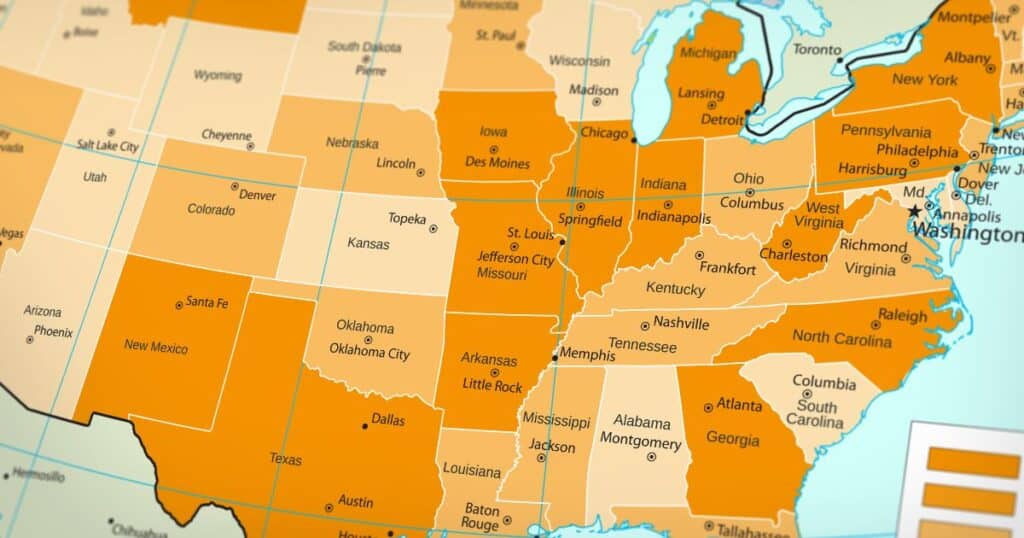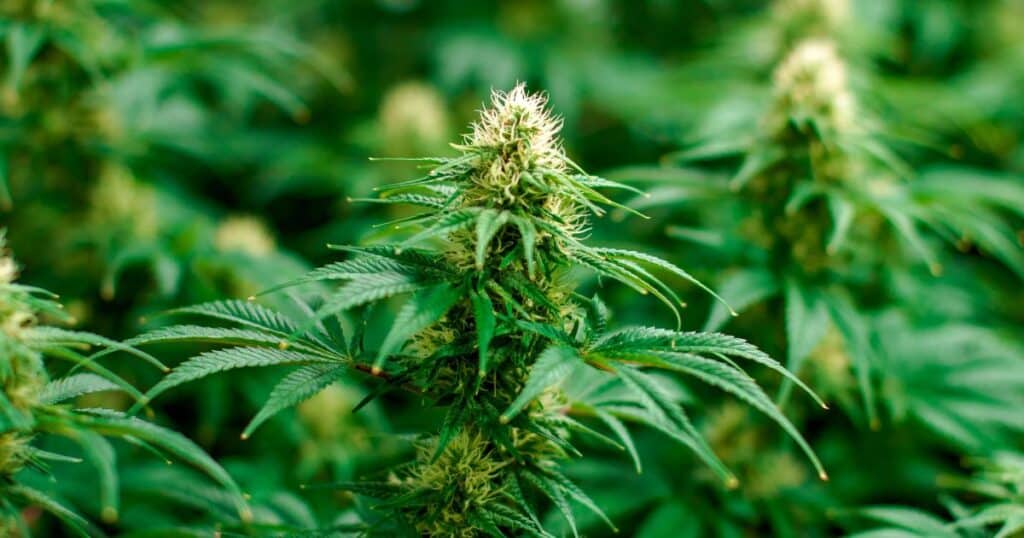The cannabis industry is growing rapidly across the United States as more states are opting to legalize marijuana for medical and recreational use. Legalization brings many economic benefits, including job creation, tax revenue, and increased consumer spending. Currently, 23 states have legalized the recreational use of cannabis, with several more poised to join their ranks in 2023.
Among the potential newcomers are Minnesota, Ohio, Pennsylvania, and Florida. Each state has taken steps toward legalizing recreational cannabis in one form or another. For example, in Minnesota, lawmakers have proposed legislation that would make it legal for adults over 21 to possess and purchase small amounts of weed from licensed retailers by 2023
In Ohio, a ballot measure was recently introduced that would do the same; and in Pennsylvania, Governor Tom Wolf has expressed support for cannabis legalization and is pushing to pass a bill this year. Meanwhile, Florida is currently home to a robust medical program and could potentially legalize recreational use soon as well.
If these four states join the trend toward cannabis legalization, they could experience a great deal of economic benefits due to increased tax revenue, job creation, and consumer spending.
In addition, each state stands to gain something unique by legalizing recreational cannabis—from the increased tourism in Minnesota to the expansion of their already-thriving medical marijuana industry in Florida—making it an exciting potential prospect for all involved. The implications of such a move are far-reaching, and it will be interesting to see if these states join the growing list of cannabis-friendly states in 2023.

Minnesota
Minnesota has proposed legislation to legalize the recreational use of marijuana for adults over 21. The state currently has a medical marijuana program, but no plans exist to expand it beyond its current scope.
If proposed legislation passes, it could make Minnesota the next state in the country to legalize recreational cannabis and align it with states like California and Colorado, which have already done so.
The recent surge of states legalizing cannabis for recreational use reflects the nation’s changing attitudes towards the popular substance. Minnesota is no exception, as a majority of Minnesotans are in favor of recreational cannabis.
This growing acceptance can be attributed to increased public knowledge and education about the benefits of medical and recreational consumption. With increased legalization come increased tax revenue, jobs, and further advances in research on the impact of cannabis on health conditions like pain management, anxiety, depression, PTSD, multiple sclerosis, and more.
If Minnesota were to legalize recreational marijuana, it’s possible that the process could move quickly. The proposed bill has already been introduced and is gaining support from both sides. Governor Tim Walz has even expressed support for the bill. If it passes, it is expected to become law as soon as July 2023, making Minnesota one of the fastest states to go from introduction to the passage of a recreational cannabis bill.
Pennslyvania
Pennsylvania is increasingly becoming an attractive option for recreational cannabis legalization. The state has long had a medical marijuana program, and public opinion is in favor of legalizing recreational cannabis, with 56% of adults supporting it, according to polling from Muhlenberg College. Furthermore, the Commonwealth of Pennsylvania is now nearly surrounded by states with fully established adult-use markets, including New York, New Jersey, Maryland, and Delaware.
There are three proposals from lawmakers hoping to regulate but also capitalize on marijuana. The state’s Democrat-held House chamber announced proposals in January and February, while the Senate, held by Republicans, announced one in December. They each include initiatives aimed at social justice and taxes which could generate significant revenue for the state.
Moreover, Pennsylvania Governor Tom Wolf has voiced his support for recreational cannabis legalization, stating that he believes it is time to “end this prohibition” and create a system that “appropriately taxes and regulates marijuana.” With all of these factors in place, there is a strong likelihood that Pennsylvania could become the 18th state to legalize recreational cannabis in the near future.
Florida
The potential for recreational cannabis legalization in Florida looks more promising than ever. The proposed constitutional amendment to legalize recreational marijuana is just 50,000 signatures away from hitting the ballot in 2024, and a recent poll has found that 70% of respondents strongly or somewhat support the measure.
In 2016, Florida legalized medical marijuana, which quickly became a booming billion-dollar industry, with sales reaching over $1 billion from January 2022 through July 2022, according to data from research firm Headset. If the recreational market is allowed to mature, some experts believe it could reach over $5 Billion in sales for Florida.
However, the proposed recreational cannabis legalization amendment does not establish a framework for what a legal market would look like. This means lawmakers will be responsible for creating regulations and taxes if the measure passes in 2024. Furthermore, it is unclear how the state government will handle public consumption or home cultivation issues.
Despite these challenges, there is still plenty of promise for Florida to become one of the latest states to legalize recreational cannabis. With strong public support and an already established medical marijuana industry, Floridians could soon enjoy access to a well-regulated adult-use market should the measure pass next year.
Ohio
Ohio is quickly becoming one of the frontrunners in potentially legalizing recreational cannabis. The Coalition to Regulate Marijuana Like Alcohol, a group pushing for adult-use legalization, has until July 5th to gather 124,000 signatures from registered voters to get their proposal on the November ballot. Thomas Haren, a spokesperson for the group, believes this issue will ultimately “cross political lines” and become law in 2023 if enough signatures are collected.
A 2022 poll conducted by Emerson College has found that a slight majority of Ohio voters support adult-use legalization, with Democrats being most supportive at 66.2%, independents at 50% and Republicans at 36.3%.
If the measure passes, it would build upon Ohio’s existing medical marijuana program and issue additional adult-use licenses to new companies. In addition, experts from Ohio State University estimate that the state could generate hundreds of millions in tax revenue within the first five years of a legal market.
This would be an incredible opportunity for Ohio, creating jobs, generating revenue, and offering safe access to cannabis products for adults. With strong public support, it looks like recreational cannabis could become a reality in Ohio as soon as 2023.
Conclusion
The potential legalization of recreational cannabis in Florida, Ohio, Pennsylvania, and Minnesota could be a major step forward for the United States – and the world – regarding cannabis reform.
These states joining the ranks of other states that have already legalized adult-use marijuana will open up more opportunities for consumers to access legal products safely, create jobs and generate tax revenue. It’s an exciting time for all involved and could mark a new era in cannabis legalization, not just in the US but globally.

With public support continuing to grow, it looks like these four states are on track to join the ever-expanding market of adult-use markets over the next few years – providing even more access to what is quickly becoming one of the most popular and lucrative industries in the United States. It’s an exciting time for cannabis reform, and these four states could play a major role in carrying it forward.
Enjoyed that first hit? Come chill with us every week at the Friday Sesh for a freshly packed bowl of the week’s best cannabis news!

















